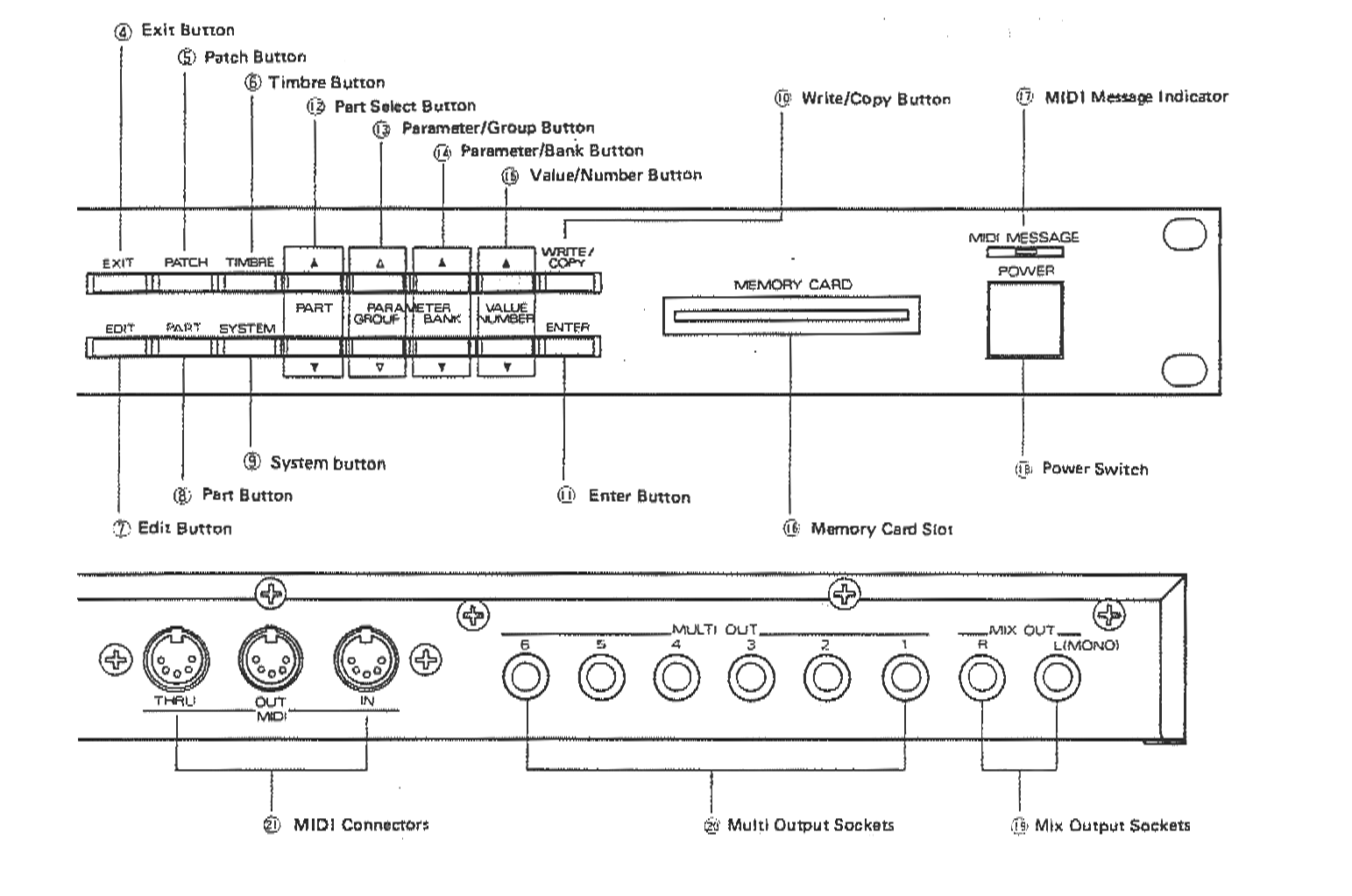OUTLINE OF THE D-110
The Roland D-1l0,a Multi Timbral Sound Module can be used as the sound source of a keyboard, sequencer, etc.
Features:
- LA Synthesis ·•.. LA stands ·for .Linear Arithmetic synthesis which is the heart of the new technology. LA synthesis involves a great many technological advances resulting not only in a superior sound quality but also an improved ease of programming, which has been proved in the 0-50 or D-550. In this way, Roland has succeeded in maintaining a high degree of familiarity to the user despite the technical wizardry involved.
- Multi Timbral Function – The Multi Timbral function turns the D-110 into eight independent synthesizers, allowing you to enjoy ensemble style performance with only one D-110.
- Multi Output – The D-110 features 6 independent Multi outputs where 6 different sounds can be sent out separately. Consequently, different effects may be applied to the various sounds, improving the quality of the mixing possibilities.
- Part – The D-110 has 8 Parts which work like conventional synthesizers, and a Rhythm Part which behaves like the sounds of a rhythm machine. Each Part can be controlled by information on a different MIDI channel.
- Tone – A Tone is the basic unit of a sound. The D-110’s memory capacity can retain 128 different Preset Tones, 64 user-programmed Tones, and 63 Preset Rhythm Tones.
- Patch and Timbre – A Timbre consists of Tones and Performance Controlling functions. The 0-110 can store up to 128 Timbres, and any of these Timbres can be assigned to each Part. During live performance, you can use various sounds by changing these Timbres.A Patch is a collection of Reverb and Part settings. The 0-110 can store up to
64 Patches.
- Built-in Digital Reverb – The digital reverberation section of the 0-110 can create reverb effects. You can set a desired reverb and write it into Patch.
- Rhythm Part The Rhythm Part of the 0-110 can use up to 85 Rhythm Tones, Preset Rhythm Tones and the Tones you have programmed Each Rhythm Tone can have a different Pan and Level setting, as desired.
- Memory Card The optional memory card (M-256D or M-1280} can be used for saving your original sound data for future use.
